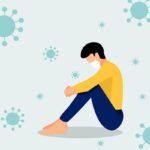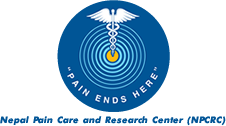
Long Covid and Mental Health
As we nearly reach the deadly end of the second wave of Covid-19 in Nepal, several recovering patients are dealing with different persisting symptoms which we define as “Long Covid”. Patients with Covid-19 infections might develop neuropsychiatric conditions after Covid and their pre-existing mental health issues might worsen during the infection and in the recovery phase. Recent studies have shown that around one-third of long Covid patients develop neuropsychiatric conditions within six months of being infected. It is very alarming to see that even people, who had no prior history of mental health problems have ended up with psychiatric conditions after the Covid-19 infection. It is not fully understood how the virus causes neuropsychiatric manifestations but the immune reaction of the body to the virus, the blood clotting abnormalities, the mental stress of being diagnosed with a life-threatening illness, the pandemic-related socio-economic problems, etc. might contribute to mental health implications of long Covid. Also, extended periods of social isolation and disrupted daily routines could be some of the precursors to poor mental health.
We have started to encounter patients with the following symptoms in our clinics after being recovered from COVID-19 infection
- Sleep disturbances
- Anxiety (palpitations, fearfulness, choking sensations)
- Panic attacks
- Frequent mood changes
- Depressive symptoms (low mood, decreased confidence, hopelessness)
- Easy fatigability
- Decreased attention and concentration
- Forgetfulness
- Feelings of something being stuck in throat and chest
- Changes in appetite
- Brain fog
- Suicidal ideation
Patients who had long hospitalization and ICU stay might present with post-traumatic stress disorder, a type of anxiety disorder characterized by frequent nightmares and flashbacks of traumatic experiences that is difficult to cope with. People might also resort to alcohol or other substances to cope with pandemic-related life events and end up getting dependent. Patients with long Covid are more vulnerable to developing substance use disorders.
One should not be reluctant to take help from a mental health professional when these problems are persistent and difficult to cope with. Any condition severe enough to interfere with daily life warrants a visit to a psychiatrist. It should be clear that no one is immune to mental illness and seeking help is not a sign of weakness.
Dr. Pawan Sharma
Consultant Psychiatrist, MD (AIIMS)



















